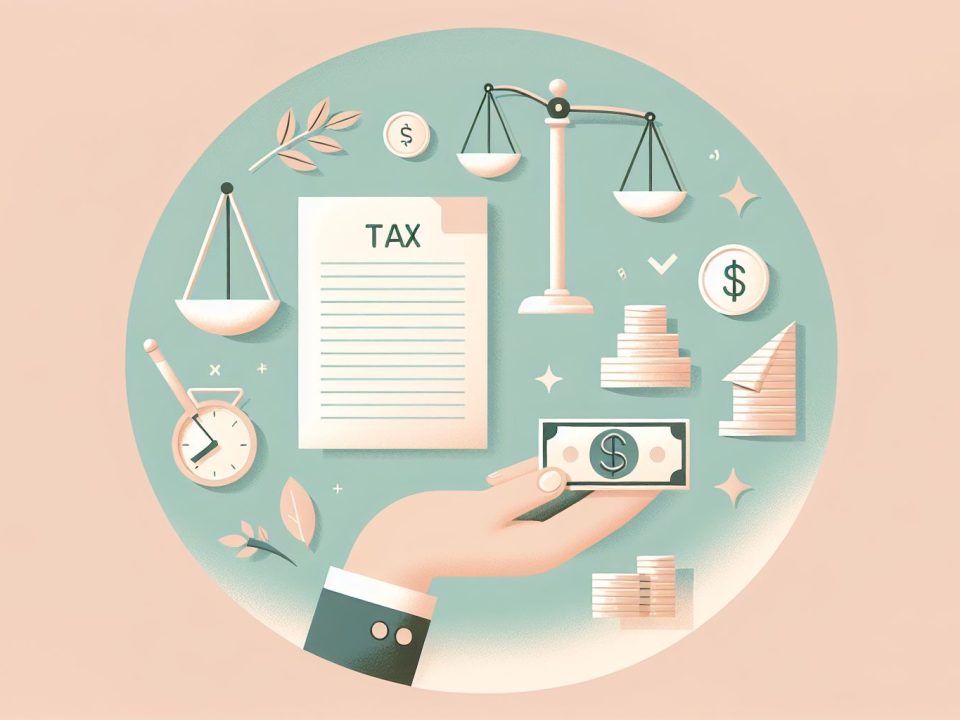
Papakura Accountants: Local Business Support from Manukau-Based Experts You Can Trust
September 29, 2025
One-Bedroom Units: The Hidden Investment Goldmine?
October 1, 2025Personal vs Trust: Ownership options for Rental Properties
When you buy a rental property as a business owner, one of the most critical decisions you’ll make isn’t about location, price, or rental yield – it’s about ownership structure. This choice will impact your tax obligations, asset protection, and long-term financial security for years to come.
Many business owners default to personal ownership without fully understanding the implications. While this approach might seem simpler initially, it could expose your investment property – and other personal assets – to significant business risks down the track.
Understanding Personal Ownership of Rental Properties
Personal ownership is the most straightforward approach to property investment. When you purchase a rental property in your own name, you’re following the same path you likely took when buying your family home or acquiring company shares.
The Benefits of Personal Ownership
Simplicity and Low Setup Costs
Personal ownership requires minimal paperwork and no complex legal structures. You can move quickly from purchase decision to settlement without the delays associated with establishing trusts or other entities.
Reduced Ongoing Compliance
There’s no need for annual trust returns, trustee meetings, or resolutions. Your rental income and expenses simply flow through your personal tax return, keeping administration straightforward.
Lower Professional Fees
Without trust structures to maintain, you’ll save on annual accounting and legal fees, making this option more cost-effective in the short term.
The Hidden Risks of Personal Ownership
However, personal ownership comes with a significant downside: exposure. As a business owner, you face inherent risks that employees and other investors don’t encounter. These risks can threaten not just your business, but all your personal assets – including your rental properties and family home.
Business Risk Examples:
- Disputes leading to legal action against you
- Workplace accidents resulting in compensation claims against you
- Market downturns causing financial distress and creditor pressure
- Professional negligence claims in service-based businesses
In each scenario, creditors can pursue your personally-owned assets to satisfy business debts or legal judgments.
Trust Ownership: A Shield for Your Assets
A trust structure creates legal separation between your personal wealth and business risks. While it requires more setup and ongoing administration, it can provide robust asset protection when properly implemented.
How Trust Protection Works
When you purchase a rental property through a trust, the trust – not you personally – owns the asset. This separation means that if your business faces financial difficulties or legal challenges, creditors typically cannot access assets held within a properly structured and administered trust.
Case Study Example:
A construction business owner purchased their first rental property in personal names to keep things simple. Several years later, their company became embroiled in a legal dispute over a commercial project. While they ultimately resolved the matter, the experience highlighted how vulnerable their personal assets had been throughout the process. Had they used a trust structure from the beginning, their rental property would have been far better protected.
Trust Administration Requirements
For a trust to provide effective asset protection, it must be administered correctly:
Proper Documentation
- All decisions must be documented through formal resolutions
- Trust deeds must be followed precisely
- Financial records must be kept separate from personal affairs
Regular Meetings
- Trustee meetings should be held regularly
- Minutes must be recorded and stored
- Major decisions require formal trustee approval
Clear Separation
- Trust bank accounts must remain separate from personal accounts
- All trust-related transactions must be properly documented
- Personal use of trust assets must be avoided or properly recorded
Tax Considerations: Personal vs Trust Ownership
While asset protection is often the primary motivation for trust ownership, tax implications also play an important role in the decision-making process.
Trust Tax Rates and Distribution Strategies
Trusts face a flat tax rate of 39% on any income not distributed to beneficiaries. This rate is higher than personal tax rates for individuals earning less than $180,000 annually, making income accumulation within trusts less tax-efficient for many property investors.
However, trustees can distribute income to beneficiaries before the financial year ends. This distributed income is then taxed at each beneficiary’s personal marginal tax rate rather than the trust’s 39% rate.
See more: How Much Tax Will I Pay in NZ: Guide to NZ Tax Rates
Tax Planning Opportunities
Trust structures offer several tax planning advantages:
Income Distribution Flexibility
- Distribute income to beneficiaries on lower tax rates
- Consider adult children at university or non-working spouses
- Adjust distributions based on beneficiaries’ changing circumstances
Capital Gains Management
- Distribute capital gains to beneficiaries on lower tax rates
- Time distributions to match beneficiaries’ tax positions
- Plan for major capital gains events
Comparing Tax Outcomes
Personal Ownership Tax Treatment:
- Rental income taxed at your marginal tax rate
- Expenses deductible against rental income
- Capital gains taxed at your marginal rate when property is sold
- Simple tax compliance through personal returns
Trust Ownership Tax Treatment:
- Undistributed income taxed at 39%
- Distributed income taxed at beneficiaries’ marginal rates
- Requires annual trust tax returns
- More complex compliance requirements
Making the Right Choice for Your Situation
The decision between personal and trust ownership isn’t one-size-fits-all. Several factors should influence your choice:
Risk Assessment Factors
Industry Risk Level
- Construction, finance, and professional services carry higher risks
- Retail and hospitality businesses face different risk profiles
- Consider your specific industry’s litigation and liability patterns
Business Structure
- Sole traders face higher personal liability than company directors
- Partnership structures create shared liability concerns
- Company structures provide some protection but may not be sufficient
Asset Value
- Higher-value property portfolios justify trust setup costs
- Consider your total asset position, not just individual properties
- Factor in future property acquisition plans
Practical Implementation Tips
Using “And/Or Nominee” Clauses
When signing Sale and Purchase Agreements, include “and/or nominee” language. This provides flexibility to assign the property to a trust before settlement while keeping your options open during the decision-making process.
Timing Considerations
Allow sufficient time between signing and settlement to establish trust structures properly. Rushed trust setups often result in documentation errors or incomplete administration systems.
Professional Guidance
Engage qualified professionals early in the process, not after purchasing. The cost of proper initial setup far outweighs the expense and complexity of restructuring later.
Long-term Wealth Protection Strategies
Your property ownership structure should align with your broader wealth protection and succession planning goals.
Succession Planning Benefits
Trust structures offer significant advantages for intergenerational wealth transfer:
Controlled Asset Transfer
- Gradually introduce family members as beneficiaries
- Maintain control while providing future security
- Avoid probate complications upon death
Family Protection
- Shield assets from beneficiaries’ relationship property claims
- Protect against beneficiaries’ business risks
- Maintain family wealth across generations
Portfolio Growth Considerations
As your property portfolio expands, trust structures become increasingly valuable:
Scalability
- Add multiple properties to existing trust structures
- Avoid repeated personal exposure as portfolio grows
- Implement consistent protection across all investments
Flexibility
- Adapt to changing family circumstances
- Respond to tax law changes
- Modify structures as business risks evolve
Frequently Asked Questions
Q: Can I transfer my personally-owned rental property to a trust later?
A: Yes, but this transfer is treated as a sale for tax purposes, potentially triggering capital gains tax and other costs. It’s generally more cost-effective to use the right structure from the beginning.
Q: What are the typical costs of setting up and maintaining a trust?
A: Initial setup costs typically range from $2,000-$4,000 through a Lawyer. Ongoing annual compliance accounting costs from $1,095+GST plus any legal fees if you have your Lawyer act as a Trustee. These costs should be weighed against the asset protection benefits and potential tax savings.
Q: Can creditors ever access assets in a trust?
A: While trusts provide strong protection, they’re not completely bulletproof. Courts can sometimes “pierce the trust veil” in cases of fraud or if the trust isn’t properly administered. However, they remain one of the most effective asset protection tools available.
Q: How does trust ownership affect my ability to claim rental losses against other income?
A: Trust losses can generally be distributed to beneficiaries and offset against their other income, subject to tax rules. However, this area can be complex and requires careful planning.
Q: Can I live in a property owned by my trust?
A: You can, but this must be done properly to maintain asset protection. The trust should charge market rent, and all arrangements must be documented formally.
Q: What happens if I want to sell a trust-owned property?
A: The trust sells the property, and trustees can distribute the proceeds or capital gains to beneficiaries according to the trust deed and tax planning considerations.
Conclusion: Protecting Your Investment Future
The choice between personal and trust ownership for rental properties isn’t just about immediate costs or tax implications – it’s about protecting your long-term financial security and family wealth.
For business owners, the risks of personal ownership often outweigh the simplicity and lower initial costs. A single business dispute, client default, or liability claim could threaten not just your current rental property, but your entire asset base.
Trust ownership requires more setup and ongoing administration, but provides a robust shield between your business activities and investment assets. When properly structured and maintained, trusts offer both asset protection and tax planning flexibility that can benefit your family for generations.
The key is getting the structure right from the beginning. Restructuring later is possible but often expensive and complex. By taking the time to properly assess your risk profile and implement the right ownership structure initially, you’ll save stress, costs, and exposure while building a more secure financial future.
Remember, this isn’t just about protecting one rental property – it’s about safeguarding your family’s wealth and ensuring your investment strategy can weather whatever business challenges may arise.
Ready to make the right choice for your rental property investments?
Don’t let a simple oversight expose your hard-earned assets to unnecessary risk. Business Like NZ Ltd have helped numerous owners structure their property investments for optimal protection and tax efficiency.
Contact us today to discuss your specific situation and explore the best ownership structure for your rental properties. Call us on 09 262 0726 or email us directly.
Based in Auckland, New Zealand, we work with clients locally, nationally, and internationally. Don’t wait until it’s too late – get your property ownership structure right from the start.
More about our rental property services here: Rental Property Accounting



